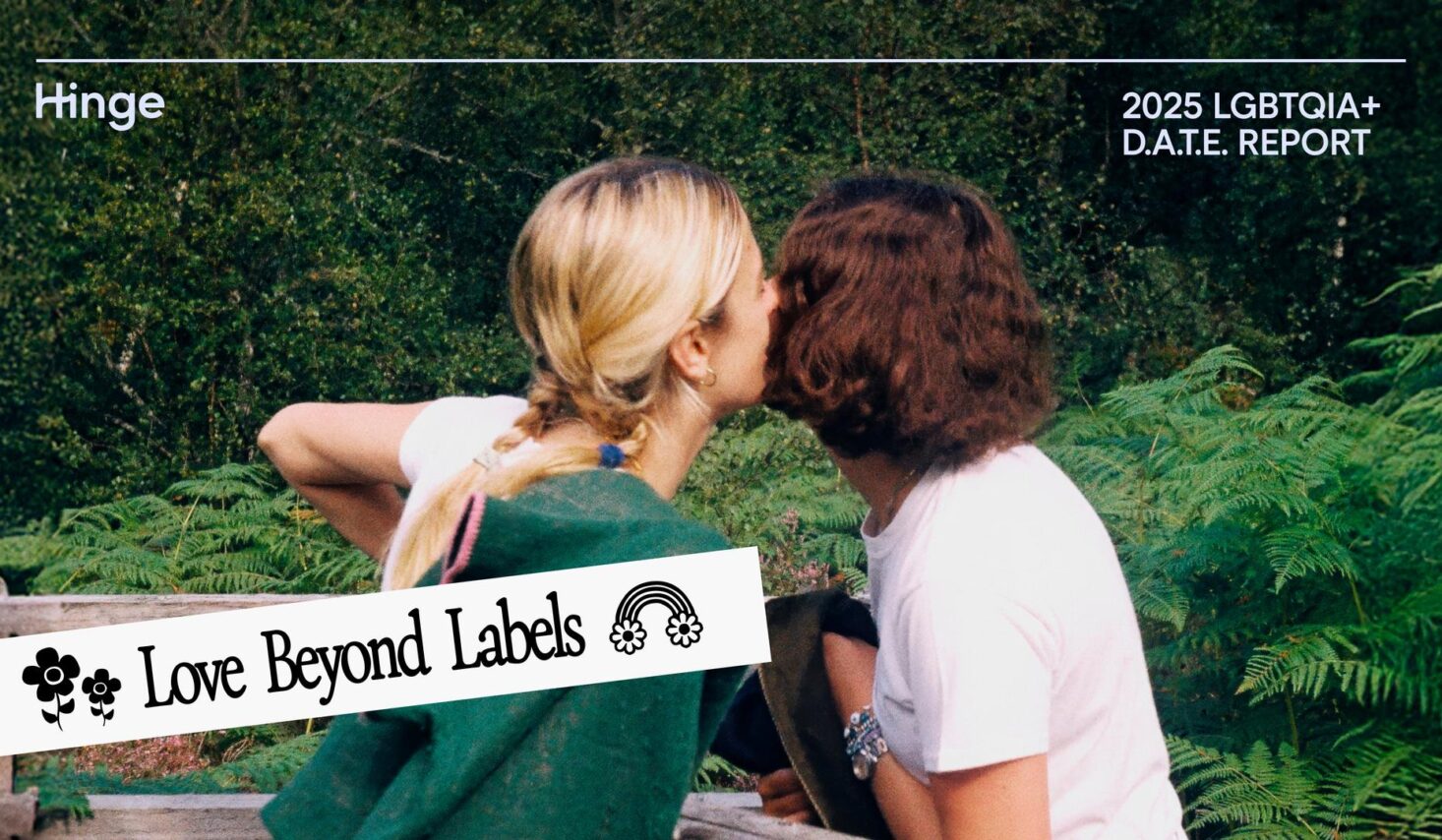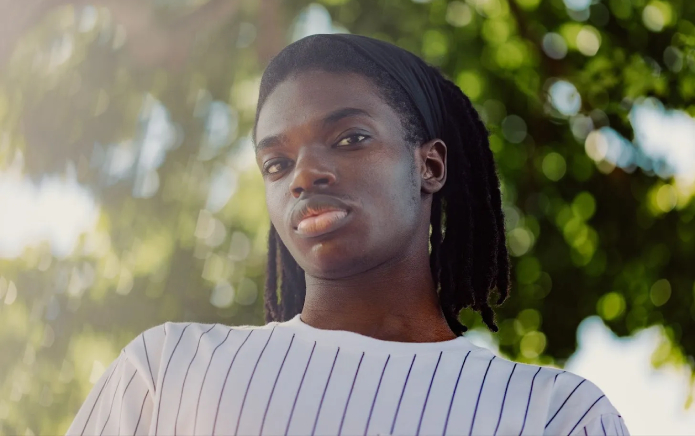
The people have spoken. Well, 14,000 LGBTQIA+ and heterosexual identifying Hinge daters have spoken. And they’ve revealed feelings of frustration when it comes to defining who they are in fixed terms.
Label fatigue, as defined in the report, disproportionately impacts LGBTQIA+ respondents, and is causing an increase in daters exploring a more fluid approach to identity; one that “allows for evolution, curiosity, and connection that doesn’t require a perfect definition first.”
What shines through the report is an innate desire to be perceived beyond the limited parameters that labels afford us. To be authentic in their self-expression and do away with performances to attract other people.
Notably, 50% of those surveyed (both LGBTQIA+ and heterosexual) felt immense pressure to present as more ‘masc’ or ‘femme’ to attract someone, with 29% of that same group regretting their decisions of not staying true to themselves afterwards.
What’s more, daters are plagued by self-doubt when it comes to dating someone outside the gender expression they’re usually attracted to, and are hesitant to explore the uncharted waters of queer dating.
But as author Charlie Craggs tells Hinge, “…you just might find that breaking those rules by dating someone outside of your usual preference is the best thing you’ve ever done.”
So there is hope for the overthinkers yet, especially as among all Hinge daters surveyed, 80% of those who experienced unexpected attraction to someone outside their usual gender, or gender expression preferences, were sparked by a person’s energy and vibe.
Could all this mean most of us are less rigid in our identities than we realise—and, if so, what is preventing us from exploring our vibe-y desires? Could more of us align with abrosexuality than we realise?
What is abrosexuality?
An abrosexual person’s sexuality is in a constant state of flux. They may experience bisexuality, then align more with lesbianism, for example, differentiating themselves from pansexual and bisexual identities, which are defined differently again.
@lucaismagic TRYING TO EXPLAIN MY SEXUALITY TO PPL 🤪 #abrosexual #abrosexuality #abrosexualidad #abro #abrosquad #lucaismagic #lgbtq #sexuality #sexualities ♬ original sound – Luca/Madz is Magic✨
To explain, an abrosexual person experiences sexual fluidity, or changes to their sexuality completely from one day to the next (it could also take months or years for a person’s sexuality to change; there’s no fixed time frame for these changes to occur). A pansexual person’s attraction, on the other hand, isn’t limited by gender. Whereas, for a bisexual person, gender plays a role in their attraction.
Now, nobody is suggesting that a person can up and switch out their sexuality consciously for another. As all of us know, intimately, there is no choosing to be LGBT+. We’re born this way. However, abrosexuality is arguably a lesser-known and understood identity within the LGBT+ umbrella, with the flag designed somewhere between 2013-2015 on either DeviantArt or Tumblr (depends who you ask…).
Taking into consideration the collective experiences with label fatigue, and the fact that many of us are feeling restricted by the limitations of the well-known identities out there, could this mean we’re missing out on aligning ourselves with an identity that takes these natural fluxes and changes we may experience into consideration?
There’s no definitive one-size-fits-all answer to this question, but if asking it has helped you define your flux in sexuality and gives you the courage to act on your attraction, then it was worth asking.
"One thing's for sure: Gen Zers are fluid, curious daters"
Whether abrosexuality is the right way to define your sexual identity, or not, and you want to do away with labels altogether. One thing’s for sure: Gen Zers are fluid, curious daters.
The Hinge report tells us that 39% of Gen-Z LGBTQIA+ daters are more likely than their millennial counterparts to have reconsidered their sexuality, based on who has sparked their attraction.
“Attraction is deeper than looks, presentations or identity markers,” says Moe Ari Brown, Love and Connection expert at Hinge, “real chemistry isn’t about someone fitting a mould; it’s how you feel in your relationship—the synergy, connection and shared experiences you co-create.”
